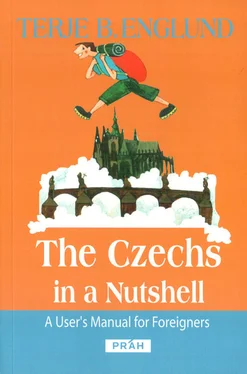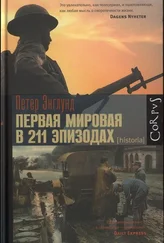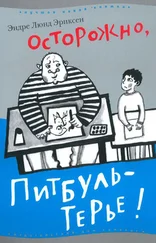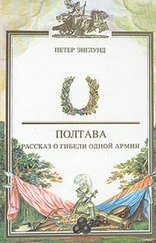However, nobody can dispute that the hospoda is a uniquely Czech institution. In what other country can you pop in at a pub with a large mug, have it filled with foaming beer and then carry it happily home to dinner?
The sapper Vodička, one of the colourful characters in the book about The Good Soldier Švejk, has earned himself eternal fame among the Czechs for one single remark: “Every Hungarian can be blamed for being a Hungarian!” Despite its chauvinistic punch, it quite adequately reflects the way in which many Czechs still regard their Hungarian ex-neighbours. Czech languageeven operates with the unbelievable expression Seš Maďar? (Are you Hungarian?) meaning “Are you a complete idiot?”
At first glance, this seems rather strange. Throughout history, the Czechs and Hungarians (today, both countries have 10 million inhabitants) have been allies against common adversaries and even subjects of the same king. Budapest looks like an over-sized, albeit dirtier, version of Prague, the Hungarian language is full of Slavonic loan words (see: Cursing) and both nations are culturally deeply marked by centuries when they where a part of the Danube Empire; for instance, by a common flair for committing suicides.
Yet the Czechs and the Hungarians, in contradiction to the traditionally hearty relations between the Polesand the Hungarians, have never become close. Bar a quite natural reaction against the communist regime’s forced friendship with other “socialist brother countries”, it’s hard to point out a single reason for the lack of common sympathy. Plain rivalry, though, appears to be a big part of the explanation.
First of all, the Czechs are one of many Slav peoples, while the Hungarians (or Magyars , as they say themselves) are a small lot of Finno-Ugric origin. The antagonism between the numerous Slavs and the linguistically and ethnically unique Hungarians profoundly deepened during the 250 years the two nations spent as subjects of the Danube Empire.
While the power apparatus in Vienna clearly distrusted the Czechs and the other Slav peoples in the Empire, the Hungarians were treated with somewhat greater consideration. Not because the Emperor had any specific love for the Hungarians, but, as the author Zsigmond Kémény points out, because Hungary was given the role of protecting the Empire’s multi-national character by dividing its Slavonic and Germanelements, and thus preventing any of them from becoming the top dog.
Hungary’s position as more equal than the other equal nations was formalized in 1867, when the Empire was split into two parts — the Austrianand the Hungarian — with the river Leitha, near Vienna, as a symbolic border. The fact that Emperor Franz Joseflet himself be crowned Hungarian king, but forgot about the Czechs, didn’t make him more popular in Bohemiaand Moravia. The magnificent Spanish Hall at Prague’s Hradčany castle, which was refurbished for the crowning ceremony that never took place, became a symbol of Czech jealousy towards the Hungarians.
What’s more, the Hungarians, who had now become full-fledged bosses of the Empire’s eastern part, didn’t waste any time in starting a rather tough magyarization of their Slavonic subjects. This didn’t directly affect the Czechs, who were ruled from Vienna. However, the Slovaksin Felvidék — Upper Hungary — were hit quite discernibly when Budapest decided to abolish the use of Slovak language in schools. Ultimately, the Hungarians backed down, but the way they badgered their Slovak subjects didn’t earn them much praise among the victims’ Czech brethren.
The mischief reached a climax in 1918, when the whole of Slovakia — including the Southern part, which for nine centuries had been densely populated by ethnic Hungarians — was declared a part of the newly-established Czechoslovak republic. When the communist government that seized power in Budapest in the spring of 1919 refused to abandon Felvidék Czechoslovakia launched a military attack on Hungary.
The Czechoslovak armed forces managed to kick the Hungarians out of Slovakia after the Western powers helped them diplomatically, but a three-month-long war was not an ideal starting point for friendly relations between Czechoslovakia and Hungary. Twenty years later, the two countries clashed again when Hungary, after the Munich Agreement, occupied the eastern-most tip of Czechoslovakia (see: Ukrainians), and then the southern part of Slovakia. Hungary had to turn most of the territory back in 1945, but ever since then, the Czechs have shared the Slovaks’ suspicion that the Hungarians are suffering from latent irredentism.
There is also a social aspect that divides the Czechs and the Hungarians. Czech society has traditionally been pronounced egalitarian, with a rather limited nobilityand upper class, but with a relatively broad middle class. Hungarian society, on the contrary, was until 1945 characterized by deep class divisions, and the local aristocracy was heavily involved in politics.
This has led to a comical situation. The Czechs, based on the fact that the average standard of living for the last centuries has been higher in industrialized Bohemia than in strongly agricultural Hungary, have regarded the Hungarians as poorer and more backward. The Hungarians, on their side, have regarded the Czechs as poorer and more backward, because their upper classes have been wealthier and more influential than those in Bohemia and Moravia.
The communists didn’t smooth out the animosity, but they at least managed to suppress open demonstrations of it. Yet certain wounds have never healed. As a part of the settlement after the Second World War, more than 12,000 ethnic Hungarians were forcefully moved from Southern Slovakia to Bohemia, where they replaced Sudeten Germans that were kicked out. Even though most of them by now are fully assimilated into their Czech surroundings, they are still aware — and proud — of their Hungarian origin.
It’s fair to say that the relations between the Czechs and Hungarians took a large step towards improvement after Czechoslovakia split into two parts. While the Slovaks then had to cope with all of the unsolved bilateral problems (the Hungarian minority’s demand for cultural autonomy in Southern Slovakia, the ecological consequences of the hydroelectric power plant in Gabčíkovo on the Danube), the Czechs, who no longer had any common border with their former neighbours, could regard Hungary as just another country in the region.
Yet the old rivalry is still alive and kicking. Hungary started its economic transformation even before the communist regime fell, and has often been perceived as the most Western and progressive country in post-communist Europe. As expected, this view was not acceptable to Václav Klausand the other protagonists of Prague’s short-lived "Reform Miracle”, who saw the Czech Republic as the unquestioned frontrunner. As a result of this rivalry, the attempt to coordinate the two countries’ integration into the EU — together with the Poles and Slovaks — in the so-called Visegrad Group utterly failed.
In the future, however, the Hungarians and Czechs seem destined for closer cooperation. NATO membership in March 1999 made them close military allies, which was strengthened further, after both countries acceded to the EU. Thus, it’s fair to assume that the two relatively small Central European countries will find far more pragmatic reasons for cooperating than petty-minded excuses for competing with each other.
Recently, Mladá fronta Dnes , the country’s leading daily, conducted a large-scale survey to find out who the Czechs consider to be their greatest national heroof all times. As expected, Tomáš G. Masaryk, Czechoslovakia’s "founder”, and king Charles IV, who doubled as Emperor of the entire Holy Roman Empire (see: Central Europe), topped the ranking list. More surprising, though, was that these two giants were closely trailed by a priest who only managed to produce a handful of books during his 44-year-long life: Jan Hus.
Читать дальше








![Theresa Cheung - The Dream Dictionary from A to Z [Revised edition] - The Ultimate A–Z to Interpret the Secrets of Your Dreams](/books/692092/theresa-cheung-the-dream-dictionary-from-a-to-z-r-thumb.webp)



